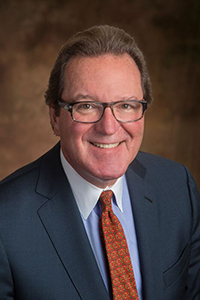by Pierre G. Villere
The harsh reality of Covid-19, and its grip on the planet, has finally settled in on me as scientists and infectious disease experts tell us the obvious: With winter coming, we are likely to witness another surge in the number of cases as colder weather forces us indoors, a breeding ground for the virus. Despite this gloomy outlook, our industry demonstrated it could power through during the first wave last spring. But how will this lingering pandemic affect us in 2021, and for the next few years ahead?
In mid-March, I was in my usual buoyant and optimistic mood: “This will be over by Memorial Day” I cheerily told my wife, “and then we can enjoy our summer at the beach and eating out in our favorite restaurants.”
Well, it didn’t happen. And while another surge is predicted, this time we hold out the promise of both better treatments for the serious cases, and multiple vaccines developed globally by various pharmaceutical companies that will start finding their way into our health system. Those two advances will allow us to attack this next surge head on. But sociologists, financial analysts, and behavioral professionals have opined that the next few years will look very different than if Covid-19 had not happened, and will change major parts of our society.
I don’t like the term “new normal.” There is no such thing. I suspect the buggy whip manufacturer in Detroit, watching the flood of Henry Ford’s Model Ts pouring out of his factories, also called it the “new normal.” What we are really experiencing is the societal evolution that occurs constantly through small but steady advances, but then catapults forward during times of stress, technological breakthroughs (think cellular telephony and the Internet) and unusual events. It is simply “change.”
Now smart prognosticators are suggesting, with or without a vaccine, Americans will live in an acutely changed world until 2022, wearing masks, avoiding crowded places and limiting travel. Add to this the recent actions of key Western European nations that have imposed yet another lockdown to curb the current surge for what could be many weeks, and we can expect that 2021, like 2020, will be another lost year for our global society.
For some time after we reach either herd immunity or have a widely distributed vaccine, people will still be recovering from the overall clinical, psychological, social and economic shock of the pandemic and the adjustments it required. The popular and business press has widely reported this recovery will likely occur for a couple of years, maybe as far out as 2024. This lingering response is not without historical precedent, as it is typical of past serious epidemics like the Spanish Flu of 1918, which serves as a historical lesson for our expectations. Then gradually, things will return to “normal,” albeit in a world with some permanent changes.
Many changes in ways of doing business that have been implemented in response to the acute shock of the pandemic are likely to endure into our post-pandemic future. For example, before the pandemic, less than half of shift-workers in the U.S. had access to paid sick leave, so most workers would still go to work when they were ill. But the dynamics of a contagious disease made it abundantly clear why this is a bad idea, so many companies—for the first time in their history—provided paid sick leave to hourly workers. Such policies are likely to endure after the virus subsides, either because companies see the wisdom of it, lawmakers enforce it, or workers demand it. This transformative policy is an example of a societal evolution that was catapulted forward.
And for our industry, much more evolution will catapult us forward; think autonomous mixer trucks, robotic concrete placement, and other touchless innovations that will make our plants and job sites look very different than they did in March 2020. Expect the societal evolution the pandemic has started to impose on our industry to be with us forever.

Pierre G. Villere serves as president and senior managing partner of Allen-Villere Partners, an investment banking firm with a national practice in the construction materials industry that specializes in mergers & acquisitions. He has a career spanning almost five decades, and volunteers his time to educating the industry as a regular columnist in publications and through presentations at numerous industry events. Contact Pierre via email at [email protected]. Follow him on Twitter – @allenvillere.